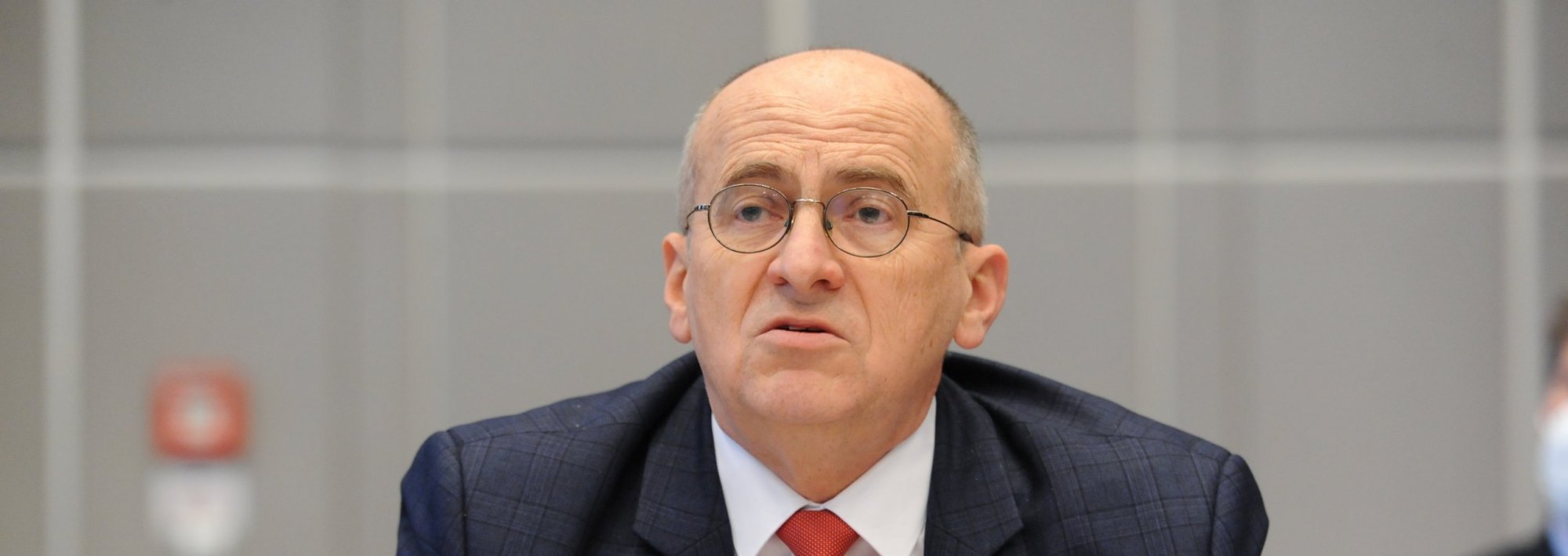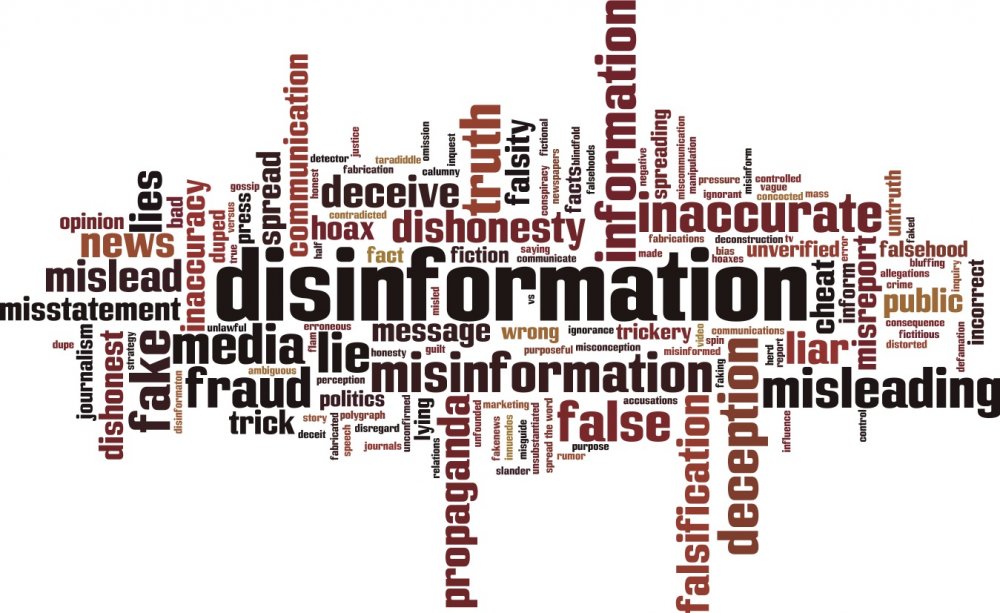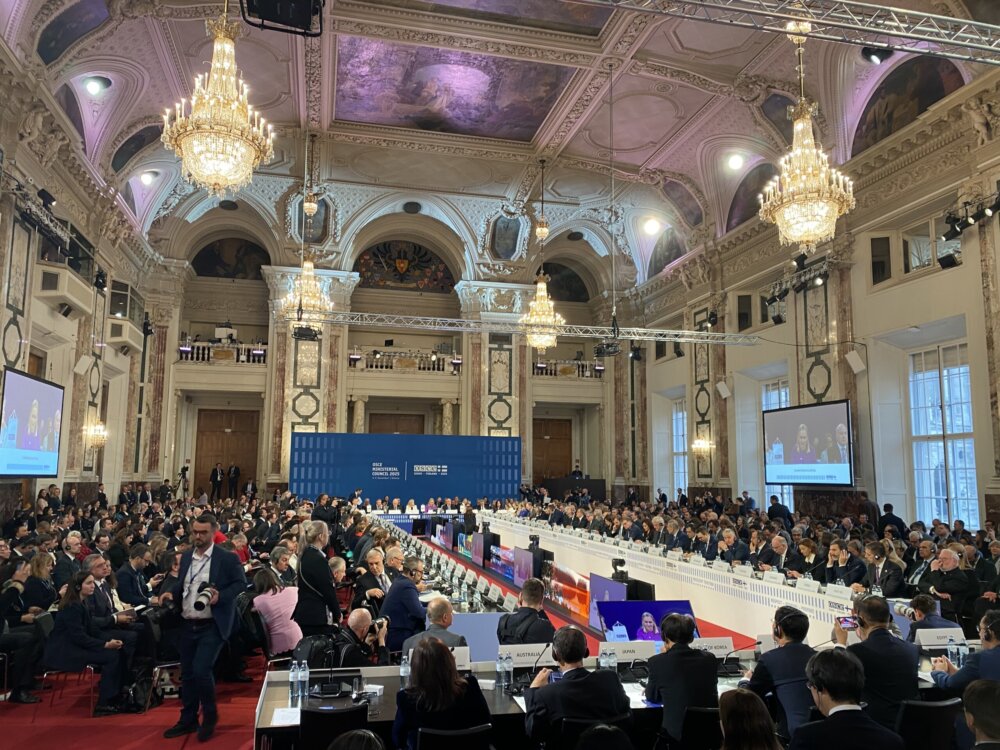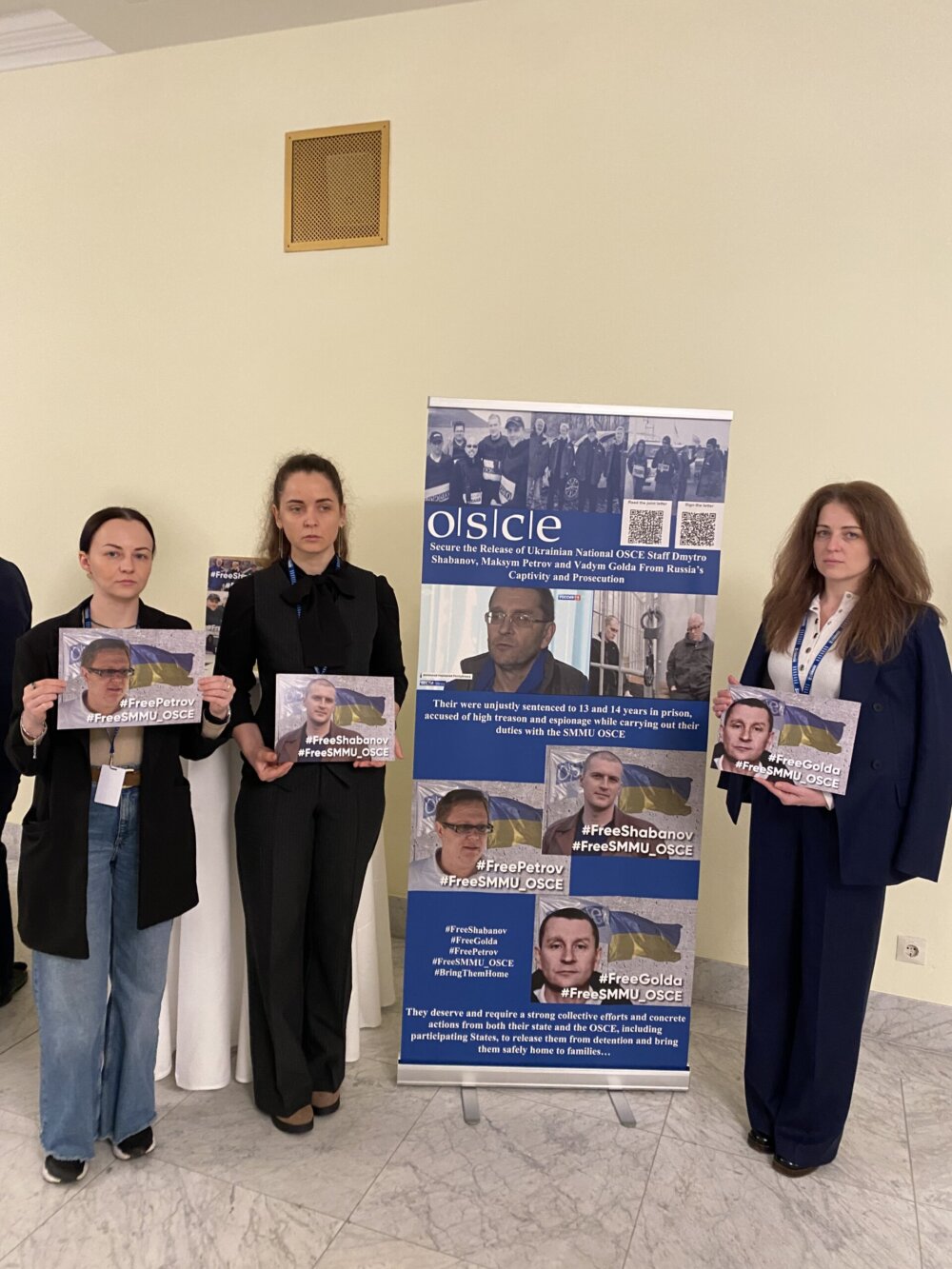OSCE/Micky Kroell

‘No Time to Waste’ Says Polish Foreign Minister Rau at Launch of OSCE Security Dialogue
On Tuesday, OSCE Chairperson-in-Office and Polish Foreign Minister Zbigniew Rau launched the Renewed OSCE European Security Dialogue in Vienna.
The initiative is intended to ease the current tense security environment in Europe by providing a multilateral forum for Ukraine, European states, Russia and the U.S. to engage in open dialogue.
The initiative comes on the heels of the existing bilateral U.S.-Russia talks in Geneva, and the ongoing NATO-Russia Council discussions in Brussels.
Foreign Minister Rau will further discuss the initiative with his Ukrainian and Russian counterparts during upcoming visits to Kyiv and Moscow.
OSCE diplomats in Vienna also say that the Polish Chair intends to cooperate closely with OSCE Secretary General Helga Schmid, who has a mandate to support the Chair’s diplomatic efforts.
Russia has amassed more than 100,000 troops near the border with Ukraine as well as in Belarus. According to U.S. officials cited in various media reports, Moscow has currently assembled 70 percent of the military equipment and troops needed for a full-scale invasion of Ukraine.
Avoiding a worst-case scenario
“The reason why we have started this dialogue so quickly is that time is running out,” Rau told reporters in Vienna on Tuesday, adding that there was “no time to waste.”
“We are, however, confident that if we all engage constructively and in good faith, we may work together around the worst-case scenario, at the same time rebuilding trust and confidence, and bringing back stability to our citizens.”
Rising tensions and fears of an invasion have led to a flurry of diplomatic meetings and high-level visits, all attempting to avert a war in Europe.
French President Emmanuel Macron met with Russian President Vladimir Putin in Moscow on February 7, while German Chancellor Olaf Scholz met with U.S. President Joe Biden in Washington. UK Foreign Secretary Liz Truss also met Russian Foreign Minister Sergey Lavrov in Moscow on February 9. In addition, several European foreign ministers have visited Kyiv in recent days.
Due to its geopolitical location, Poland, a member of NATO, could face spillover effects in the event of a Russian invasion of Ukraine. In a show of solidarity, the U.S. is therefore deploying around 3,000 extra troops from Fort Bragg in North Carolina to Poland and Romania.
But Poland is also chairing the OSCE this year, and in this capacity, it is obliged to take the stance of an honest and neutral broker, and “represent the positions, views, and ideas of each and every participating state”, as Foreign Minister Rau said.
Reconciling fundamental OSCE principles
In launching the dialogue initiative, Poland is asking OSCE states to reflect on different understandings and interpretations of the OSCE’s fundamental principles, which are enshrined in the organization’s founding documents. This includes the principles of peaceful interstate relations, refraining from the threat or use of force, sovereign equality, and the inviolability of frontiers.
The proposal also accommodates Russia’s demand for a discussion on indivisible security, another of the OSCE’s founding principles. It says that states cannot increase their security at the expense of others.
On January 28, Russian Foreign Minister Sergey Lavrov wrote to the United States, Canada and several other states, asking them to explain how they intend to fulfil their commitment to the principle of indivisible security.
“Our western colleagues are simply trying not even to ignore but to consign to oblivion this key principle of international law agreed in the Euro-Atlantic space,” Lavrov told reporters on February 1.
The principle of indivisible security is mentioned in several OSCE documents, including in the 1999 Charter for European Security as well as the 2010 Astana Commemorative Declaration.
While the 1999 Charter says that it is intended to “contribute to the formation of a common and indivisible security space” and create an OSCE area “free of dividing lines and zones with different levels of security”, it also stresses the “inherent right of each and every participating State to be free to choose or change its security arrangements, including treaties of alliance, as they evolve”.
Reconciling those principles, and discussing how OSCE participating states interpret and implement them, is the main priority of the Renewed OSCE European Security Dialogue.
Deputy Secretary of State Wendy R. Sherman, who joined the launch of the Renewed OSCE European Security Dialogue virtually, shared her views on this question: “[I]ndivisibility of security does not mean that one country can threaten the use of force against another. Indivisibility of security does not mean that one country can invade another and seek to illegally annex another country’s territory. Indivisibility of security does not mean one country gets to veto another country’s choice of alliances or dictate another country’s security decisions.”
Building upon this point, Ukraine’s Ambassador to the OSCE again stressed each state’s “freedom to choose or change its security arrangements”, adding that Russia seemed to “dictate to others how they should ensure Russia’s security”. “Russia still believes that thousands of regular troops, tanks and pieces of artillery could intimidate people and stop their aspirations to be free,” he said.
Improving military transparency
The security dialogue will also focus on concrete steps that the OSCE could take in the areas of conflict prevention and conflict resolution. It will seek ways to ease military tensions, including through the development of arms control instruments and risk reduction measures, as well as with confidence- and security-building measures.
Some of these topics have been explicitly mentioned by the U.S. in their reply to the Russian draft treaty on security guarantees.
It should be noted that the OSCE already has an established dialogue process on military security matters in place, called the Structured Dialogue. It has been discussing many of the aforementioned topics since 2017. It was not immediately clear how the new Polish initiative will cooperate with this established OSCE format and how exactly it will differ.
OSCE participating states have also already agreed on the Vienna Document that provides for military transparency between participating states, which includes mutual notifications and inspections of military exercises. But the Vienna Document is not being properly applied at the moment, and hasn’t been updated or modernized since 2011.
The Polish dialogue initiative will also cover other topics, including hybrid warfare, cybersecurity, and disinformation, according to the Polish Chair.
Russia refusing the initiative
Russia, however, continues to refuse Poland’s effort to initiate a European security dialogue, calling it “ill-conceived”.
“Our position has remained unchanged: we need to focus on a dialogue with the US and NATO member countries, with which we seek to conclude long-term legally binding security guarantees,” Alexander Lukashevich, Russia’s Ambassador to the OSCE, told the Russian news agency TASS on Tuesday. “In the absence of progress in these fields, the conversation in the OSCE will not bring results. In addition, the OSCE is not capable of negotiating legally binding agreements.”
Polish Foreign Minister Rau said that his upcoming visit to Moscow will be a “good opportunity” to discuss this point with Russian Foreign Minister Lavrov, adding that he was “very optimistic” about the upcoming meeting.



Comments
* Your email address will not be published